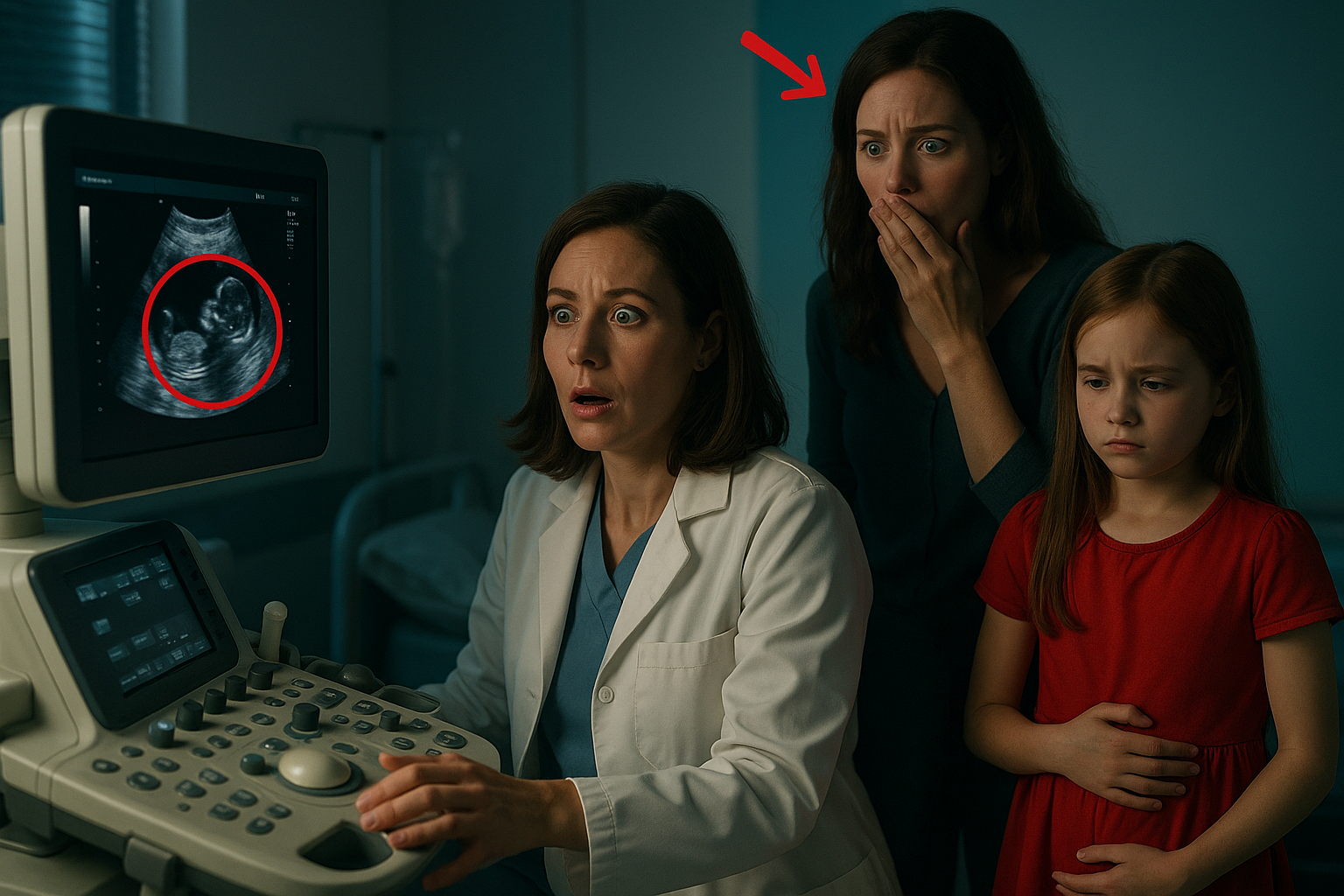“The Man in Room 208” – The Coma Patient Who Wasn’t Sleeping
For fifteen years, Dr. Adrian Miller had walked the sterile hallways of St. David’s Hospital in Chicago without ever flinching. He had seen everything — tragedy, miracles, and mysteries that medicine couldn’t explain. But nothing in his career would haunt him the way Room 208 did.
That was where Marcus Langford slept — or at least, that’s what everyone believed.
Marcus had been in a coma for almost ten years after a reported car accident. The file said “severe traumatic brain injury.” He was thirty-two when admitted — young, strong, with no known family. Over the years, nurses came and went, charts were updated, and yet Marcus remained unchanged.
But the truth was that Marcus wasn’t like other coma patients.
He was… different.

Dr. Miller first noticed it during a routine examination. Most long-term coma patients suffered from muscle loss, sunken skin, brittle bones. But Marcus? His body was lean, firm, and unnervingly preserved — like someone who exercised daily. His pulse was strong. His skin warm. His reflexes occasionally flickered during tests.
Once, as Adrian adjusted the IV line, Marcus’s fingers twitched. Not a random reflex — a deliberate movement, slow and controlled.
He brushed it off at first. The mind plays tricks when exhaustion sets in. But something about that ward had begun to feel wrong.
He wasn’t the only one who noticed.
Nurse Lila Thompson, one of the nurses assigned to Marcus, had grown pale and withdrawn. She avoided the room unless absolutely necessary. When Adrian asked if everything was fine, she forced a smile and said, “He gives me the creeps sometimes… the way he looks like he’s just about to wake up.”
Adrian chuckled at the time. “If only,” he said.
He didn’t laugh later.
It started as hospital gossip — the kind of whispers that echo through cafeterias and nurses’ lounges.
“Did you hear? Lila’s pregnant.”
“So soon after Emily? That’s odd…”
“Wasn’t Valerie pregnant before that too?”
Three nurses. Same floor. Same patient assignment.
At first, Adrian thought it was coincidence. Hospitals were full of young staff, lives overlapping. But then the timing hit him: each woman had fallen pregnant shortly after working shifts with Marcus Langford.
Something inside him stirred — that sharp, clinical instinct that told him something was very, very wrong.
When he brought it up to the hospital director, Dr. Helen Brooks, she waved it off. “Adrian, this place runs on rumors. Don’t get caught up in it. Focus on your patients, not the gossip mill.”
But her tone was too sharp. Her eyes, too quick to move away.
And that was when Adrian decided to dig deeper.
He began with Nurse Valerie Cook, the first to leave. She had transferred to another hospital after a “personal matter.” He tracked down her new workplace and called under the guise of a routine reference check.
When she picked up, her voice trembled as soon as he said his name.
“Dr. Miller? Oh… God, you’re calling about him, aren’t you?”
“Marcus Langford,” he said quietly.
There was a pause. Then, almost in a whisper, she said, “Don’t go near that room at night.”
And the line went dead.
By the time he returned to St. David’s, a sense of dread followed him like a shadow. He requested access to the ward’s security recordings, hoping to find anything — anyone — who had been tampering with equipment.
But when he checked the system logs, he saw it: the camera in front of Room 208 had been disabled for eight months.
No error, no technical issue — manually switched off.
He confronted maintenance. They swore they’d been told to leave it that way “per instructions from administration.”
When he asked who gave that order, no one could say.

That night, Adrian waited until the hospital emptied out. He walked through the dim corridors, the fluorescent lights buzzing overhead, the air heavy with antiseptic. The clock struck midnight.
He stood before the door to Room 208.
Inside, Marcus lay motionless — chest rising and falling, face calm, monitors beeping in rhythm. The only sound was the faint hum of the machines.
Adrian approached the bed and examined the man. His skin was warm, pulse strong. His muscles looked… engaged, almost flexed. He leaned closer, curiosity mixing with unease.
“Marcus,” he whispered. “Can you hear me?”
No response.
He reached for the pulse again — still strong, steady. But then something strange happened.
The rhythm changed.
It quickened — not the erratic flutter of a machine glitch, but the pulse of a man aware of being touched.
Adrian frowned and pulled back slightly. “Marcus?”
Nothing.
He sighed, turned toward the chart — and then heard it.
A breath.
Not the soft, mechanical sigh of a ventilator. A deliberate inhale — sharp and alive.
He turned.
Marcus’s chest was rising faster now. His eyelids fluttered. His lips… moved. Just barely.
Adrian froze, his heartbeat hammering. “You… you can hear me.”
The lips twitched again — forming a faint, unmistakable curve.
A smile.
Adrian stumbled backward, hitting the edge of the counter. “Oh my God,” he muttered, voice shaking.
Marcus’s eyes remained closed, but that smile stayed — a silent, knowing expression.
By morning, Adrian could barely function. He tried to tell Dr. Brooks what he’d seen, but she cut him off instantly. “This conversation is over, Adrian,” she said coldly. “You’re overworked. Take a leave of absence.”
He left her office furious — and afraid.
When he returned to the ward that evening, Room 208 was empty.
Marcus Langford was gone.
The chart had vanished, the bed stripped, the monitors removed. The staff claimed there had never been a “Marcus Langford” admitted there at all.
Adrian demanded to see the records — every file, every signature. But in the hospital database, Patient 208 didn’t exist. His name had been wiped.
The nurses who had cared for him — Valerie, Emily, and Lila — were all on extended medical leave. None returned his calls.
Weeks later, Adrian received a letter in his office mailbox — unmarked, no return address. Inside was a single page.
A photo.
Three newborn babies. Same eyes. Same faint birthmark under the left ear.
On the back, a handwritten note:
“Some things aren’t meant to sleep forever. Thank you for watching him.”
Adrian’s hands shook. He stared at the photo until the room spun around him.
That night, he drove back to St. David’s. The door to Room 208 was locked, the lights off. He pressed his ear to the glass — silence. Then, faintly, from deep within the dark room, he heard something that turned his blood cold.
The sound of breathing.
Slow. Steady. Familiar.
And somewhere, from inside the darkness — the faintest whisper.
“You should’ve left me sleeping, doctor.”
News
Everyone Was Shocked! Kim Finally Confesses a Secret About Paulo Avelino — Fans Left Swooning Nationwide
It was an ordinary day on live television — until it wasn’t. What started as a lighthearted segment suddenly turned…
Kim Chiu Stuns Everyone With Bold Bald Look — Fans Call It “Hollywood-Level,” Netizens Ask: What Was Paulo Avelino’s Reaction?
Just when fans thought they had seen every possible transformation from Kim Chiu — from sweet girl-next-door to fierce leading…
Shocking, Painful, and Brave: The Real Life of Liza Soberano Today — From Philippine Stardom to Finding Her Own Voice
Do you still remember Liza Soberano? She was once called “the most beautiful face of Philippine showbiz.”The girl with the angelic smile,…
INUTUS-UTUSAN AT HINAMAK ANG BAGONG EMPLEYADO — PERO NANG DUMATING ANG “BIG BOSS,”
INUTUS-UTUSAN AT HINAMAK ANG BAGONG EMPLEYADO — PERO NANG DUMATING ANG “BIG BOSS,” NAPALUHOD ANG MANAGER SA HARAP NG KANYANG…
LAGING NILALAIT NG BIYENAN NA “WALANG KWENTANG MAGGUGULAY” — SA ISANG MALAKING PARTY,
LAGING NILALAIT NG BIYENAN NA “WALANG KWENTANG MAGGUGULAY” — SA ISANG MALAKING PARTY, NATUKLASAN NIYANG ANG CHAIRMAN NA SUSUYOIN NIYA…
HE’S BEING LAUGHED BECAUSE HIS FATHER IS A “GASPERER” — BUT AT GRADUATION
SHE IS MADE LAUGHTER BECAUSE HER FATHER IS A “GASMER” — BUT AT GRADUATION, THEY ARE SHOCKED WHEN HE IS…
End of content
No more pages to load












